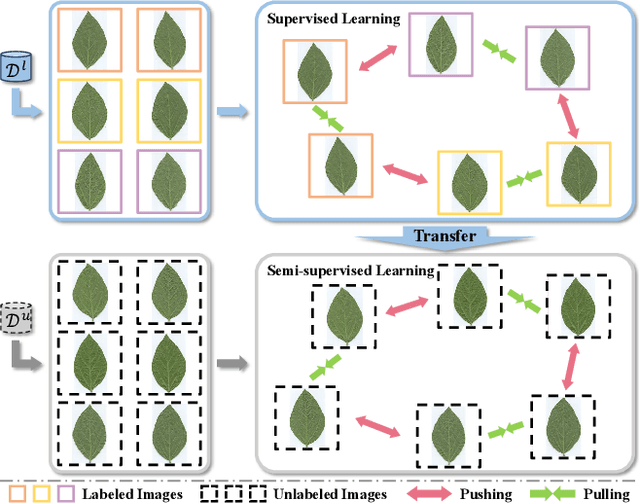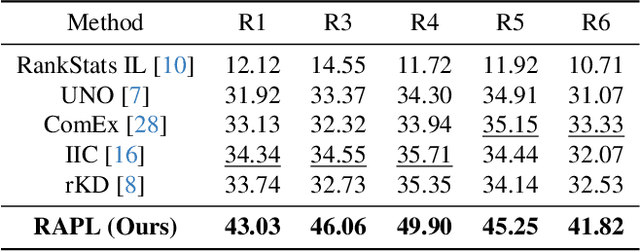Binglin Qiu
Not Just Object, But State: Compositional Incremental Learning without Forgetting
Nov 05, 2024Abstract:Most incremental learners excessively prioritize coarse classes of objects while neglecting various kinds of states (e.g. color and material) attached to the objects. As a result, they are limited in the ability to reason fine-grained compositionality of state-object pairs. To remedy this limitation, we propose a novel task called Compositional Incremental Learning (composition-IL), enabling the model to recognize state-object compositions as a whole in an incremental learning fashion. Since the lack of suitable benchmarks, we re-organize two existing datasets and make them tailored for composition-IL. Then, we propose a prompt-based Composition Incremental Learner (CompILer), to overcome the ambiguous composition boundary problem which challenges composition-IL largely. Specifically, we exploit multi-pool prompt learning, which is regularized by inter-pool prompt discrepancy and intra-pool prompt diversity. Besides, we devise object-injected state prompting by using object prompts to guide the selection of state prompts. Furthermore, we fuse the selected prompts by a generalized-mean strategy, to eliminate irrelevant information learned in the prompts. Extensive experiments on two datasets exhibit state-of-the-art performance achieved by CompILer.
Novel Class Discovery for Ultra-Fine-Grained Visual Categorization
May 10, 2024



Abstract:Ultra-fine-grained visual categorization (Ultra-FGVC) aims at distinguishing highly similar sub-categories within fine-grained objects, such as different soybean cultivars. Compared to traditional fine-grained visual categorization, Ultra-FGVC encounters more hurdles due to the small inter-class and large intra-class variation. Given these challenges, relying on human annotation for Ultra-FGVC is impractical. To this end, our work introduces a novel task termed Ultra-Fine-Grained Novel Class Discovery (UFG-NCD), which leverages partially annotated data to identify new categories of unlabeled images for Ultra-FGVC. To tackle this problem, we devise a Region-Aligned Proxy Learning (RAPL) framework, which comprises a Channel-wise Region Alignment (CRA) module and a Semi-Supervised Proxy Learning (SemiPL) strategy. The CRA module is designed to extract and utilize discriminative features from local regions, facilitating knowledge transfer from labeled to unlabeled classes. Furthermore, SemiPL strengthens representation learning and knowledge transfer with proxy-guided supervised learning and proxy-guided contrastive learning. Such techniques leverage class distribution information in the embedding space, improving the mining of subtle differences between labeled and unlabeled ultra-fine-grained classes. Extensive experiments demonstrate that RAPL significantly outperforms baselines across various datasets, indicating its effectiveness in handling the challenges of UFG-NCD. Code is available at https://github.com/SSDUT-Caiyq/UFG-NCD.
 Add to Chrome
Add to Chrome Add to Firefox
Add to Firefox Add to Edge
Add to Edge